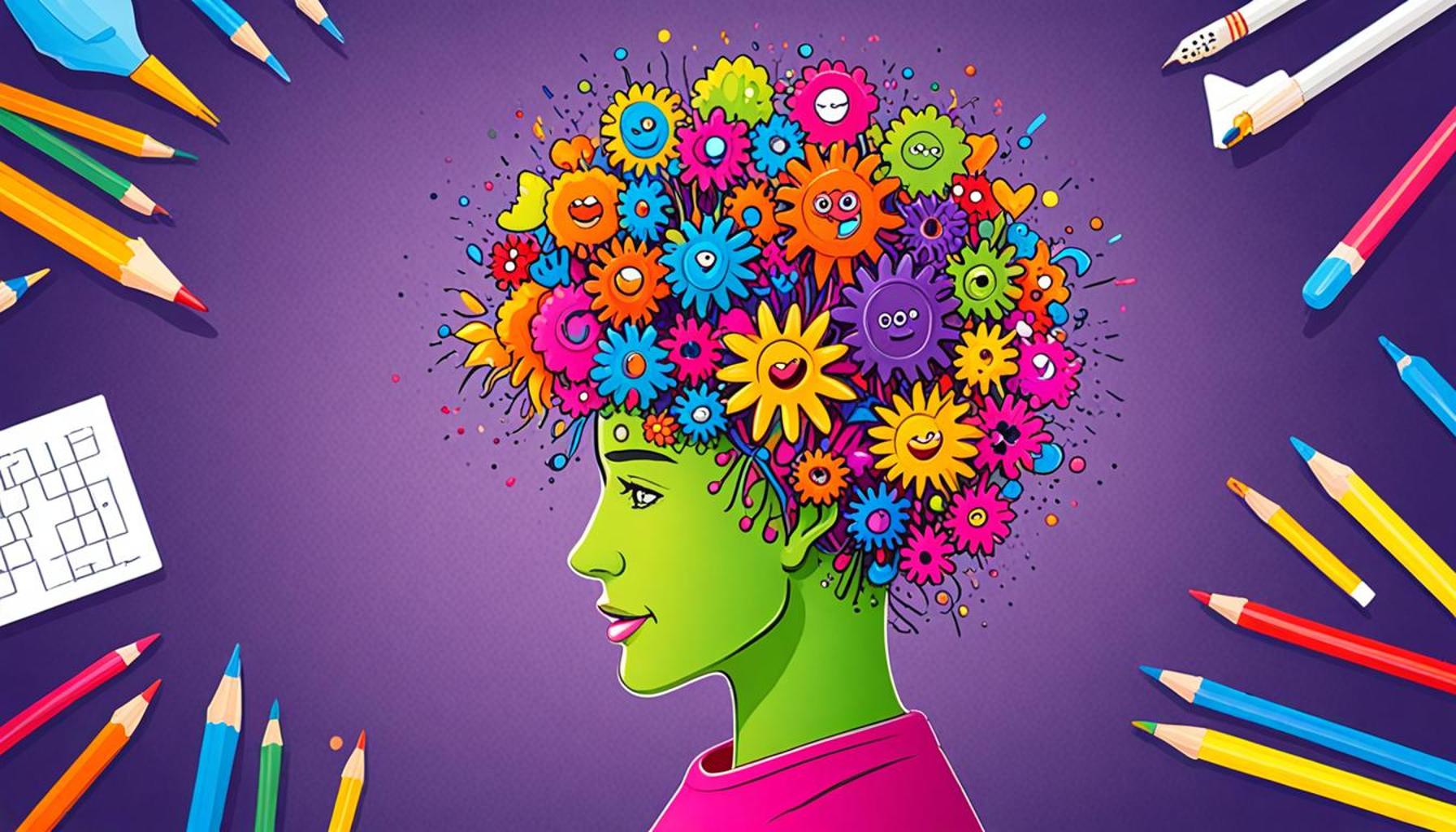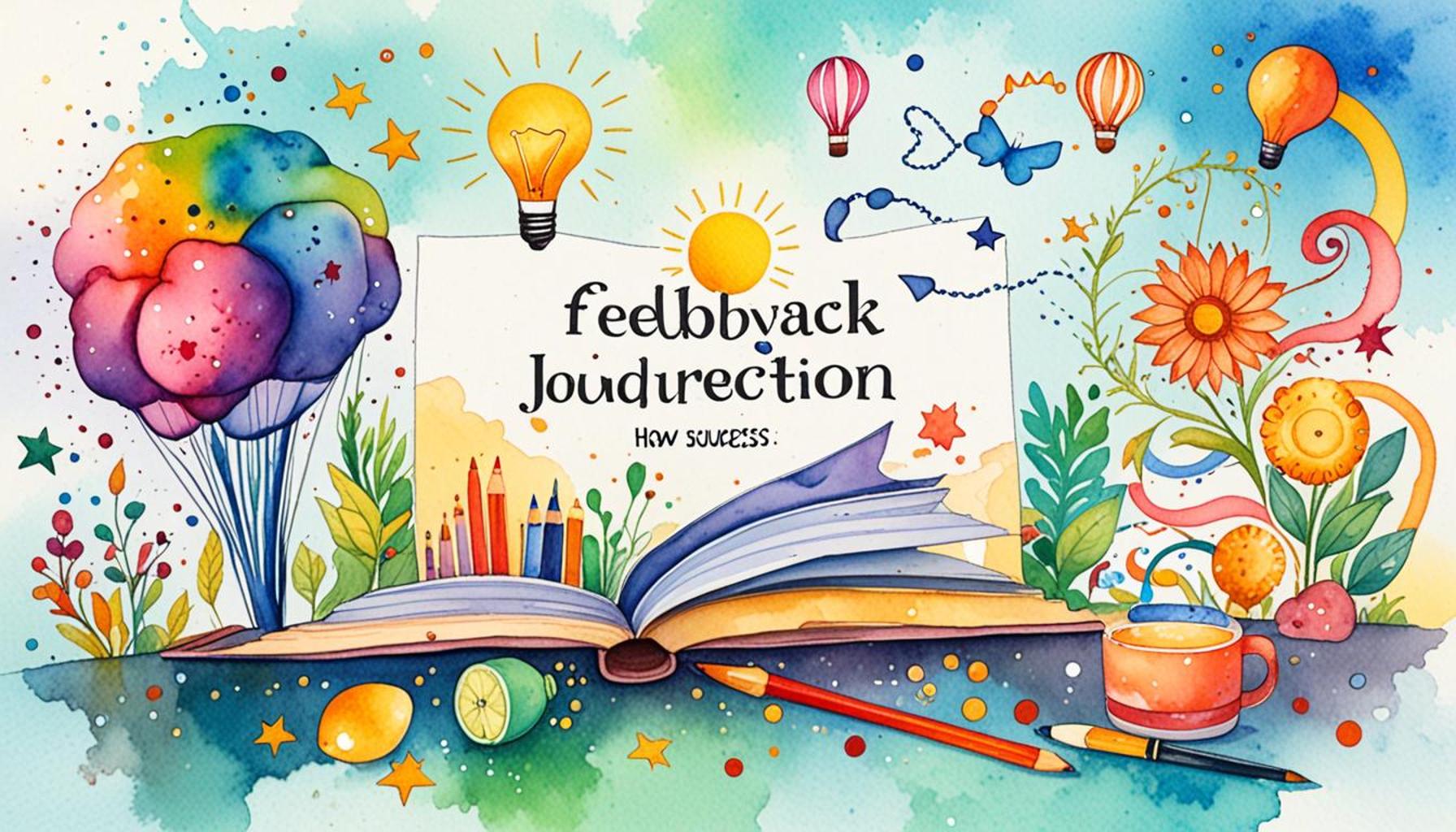The Role of Feedback in Overcoming Personal and Professional Limitations

The Essence of Feedback in Personal and Professional Growth
Feedback serves as a powerful tool in both personal and professional development. It allows individuals to gain insights into their strengths and areas for improvement. In Nigeria’s diverse and dynamic environment, understanding the role of feedback can be crucial for growth, shaping careers, relationships, and the wider community.
Personal Growth: One of the most significant benefits of feedback is that it fosters self-awareness. In Nigeria, where cultural norms often emphasize communal values and mutual respect, receiving feedback can offer individuals a clearer perspective of their capabilities and limitations. For example, consider a young Nigerian entrepreneur who receives input from mentors and peers. This feedback can highlight not only the entrepreneur’s successes but also the areas needing attention, such as marketing strategies or financial management practices. By acknowledging these limitations, individuals can set specific goals for their personal development, leading to a more fulfilling life and enhanced confidence.
Professional Development: In the workplace, constructive criticism plays a vital role in enhancing skills and performance. For instance, in Nigeria’s bustling tech industry, professionals often engage in peer reviews to refine their coding skills. Feedback from colleagues can provide insightful suggestions that drive efficiency and improve project outcomes. Companies, particularly startups in tech hubs like Lagos and Abuja, have begun to prioritize continuous feedback loops, making it an integral part of their work culture. This stimulates innovation, breeds collaboration, and ultimately leads to improved organizational performance.
Community Learning: Feedback isn’t limited to individual growth; it also functions as a catalyst for community learning. In a country characterized by rich diversity, sharing experiences through feedback can enrich communal knowledge and support collective progress. Consider local farmers in Benue State who engage in feedback sessions to discuss crop yields and farming techniques. By sharing successes and failures, they foster a learning environment that elevates skills across the community, promoting sustainable agricultural practices and food security.
In practice, feedback can take various forms. It may be formal, such as structured performance reviews or project evaluations, or informal, like casual conversations among peers or within familial settings. Positive feedback, such as praise for excellent work, can boost morale and motivation, whereas negative feedback plays a constructive role by identifying areas for potential improvement.

Navigating feedback effectively involves open communication, active listening, and a willingness to embrace change. In a rapidly evolving job market, particularly in Nigeria’s emerging sectors, honing this skill can be a decisive factor in career advancement. As Nigerian professionals strive for excellence, the underlying question remains: how can feedback truly help overcome limitations? Embracing a culture that values constructive dialogue can lead not only to individual success but also to the flourishing of communities and industries alike.
YOU MAY ALSO LIKE: Read read another article
The Transformative Impact of Feedback on Self-Improvement
Feedback is not just a simple exchange of opinions; it is a catalyst for profound personal and professional transformation. In Nigeria, a nation brimming with diverse talents and ideas, understanding and leveraging feedback can effectively dismantle barriers that limit the potential of individuals. Whether it stems from a boss, a peer, or even a family member, feedback serves as a mirror reflecting our abilities and shortcomings.
Building Self-Awareness: One of the primary roles of feedback is to enhance self-awareness. Self-awareness allows individuals to critically assess their actions and thoughts, leading to better decision-making and stronger interpersonal relationships. For instance, consider a university student in Nigeria who actively seeks feedback on their presentation skills from peers and instructors. This constructive criticism could illuminate areas such as body language, clarity of message, or engagement techniques. As these insights are absorbed and acted upon, the student’s confidence burgeons, transforming them into a more competent and influential speaker.
Creating a Culture of Continuous Learning: Feedback also plays a critical role in fostering an environment of continuous learning. Within organizations, particularly in the fast-paced Nigerian market, initiating a feedback-rich culture can significantly influence employee morale and performance. Companies that encourage an open feedback culture generally experience:
- Improved Communication: Open dialogues encourage workers to express ideas and concerns freely.
- Enhanced Team Collaboration: Constructive criticism fosters collective problem-solving and innovation.
- Higher Employee Retention: Employees who feel valued and understood are more likely to stay with the organization.
In a practical scenario, tech startups in cities like Lagos have begun implementing regular feedback sessions as part of their operations. These sessions can include group brainstorming meetings, which allow team members to candidly share their ideas and suggestions. Such practices not only empower employees but also enhance product development, keeping innovations fresh and relevant in the ever-evolving tech landscape.
Navigating Cultural Norms: In Nigeria, where collectivism often prevails, the art of giving and receiving feedback can sometimes be overshadowed by cultural sensitivities. The challenge lies in transforming feedback into a constructive process rather than a source of conflict. Engaging in culturally aware feedback practices—ones that prioritize respect and empathy—can be transformative. For example, when discussed tactfully within a family business structure, feedback could promote smoother father-son working relationships by addressing issues without hurting egos. Cultivating this respect for personal feelings while providing honest insights could result in leveraging generational knowledge gaps to elevate business performance.
In essence, feedback can serve as both a mirror and a roadmap for individuals striving to surpass their limitations. As the Nigerian landscape continues to evolve and become increasingly globalized, the effective use of feedback will prove to be an invaluable asset in both personal and professional domains. Embracing feedback as a gift rather than a critique not only reveals opportunities for improvement but also strengthens one’s resolve to advance. This positive shift paves the way for a more successful and resilient society capable of overcoming its inherent challenges.
| Category | Key Features |
|---|---|
| Constructive Criticism | Encourages growth through actionable insights, helping individuals identify areas for improvement. |
| Enhanced Communication Skills | Facilitates better relationships by promoting open dialogue, creating a supportive environment that fosters trust. |
| Emotional Intelligence | Boosts self-awareness and empathy, allowing individuals to manage their reactions to feedback effectively. |
| Professional Development | Identifies opportunities for growth, assisting in career advancements and skill enhancement through reflective practices. |
Feedback plays a crucial role in overcoming limitations, both on a personal and professional level. It opens the door to self-reflection and encourages personal growth. By understanding how others perceive our actions and decisions, we can pinpoint areas that need improvement. Moreover, receiving feedback, particularly constructive criticism, aids in developing better communication skills. This advancement not only enhances interpersonal connections but also lays the groundwork for a supportive environment where ideas are freely exchanged.Additionally, feedback can significantly influence emotional intelligence. Individuals become more aware of their emotional responses to critique, which allows for better management of interpersonal relationships. The practice of seeking and addressing feedback creates a cycle of continuous improvement, making professionals more adept at navigating their careers. Those who embrace feedback are typically more poised to seize emerging opportunities, ensuring not just survival but success in their respective fields.
RECOMMENDED: Check out this similar article
Harnessing Feedback as a Tool for Empowerment and Growth
In the realm of personal and professional development, the consistent application of feedback can be seen as a powerful tool for empowerment. It not only encourages growth but also equips individuals with the necessary insights to confront their limitations effectively. In Nigeria, where the hustle culture drives many to succeed, leveraging feedback can be a game-changer in navigating career trajectories and personal ambitions.
Feedback as a means of Skill Enhancement: The importance of feedback in refining skills cannot be overstated. In fields such as engineering and the arts, for instance, constant input from mentors and peers can lead to the honing of intricate skills that are vital for success. A graphic designer in a bustling city like Abuja, who regularly seeks feedback on their designs from clients and colleagues, can identify key trends and preferences that resonate with their target audience. This iterative process ensures that their work evolves and stays relevant, consequently expanding their portfolio and attracting more clients.
Addressing Emotional Intelligence: Feedback isn’t just about technical skills; it also serves as a critical vehicle for developing emotional intelligence. In a diverse workplace setting where emotions can run high, understanding one’s emotional responses through feedback can lead to improved interpersonal dynamics. For instance, a manager who invites open feedback regarding their leadership style may discover that their communication approach lacks clarity. By accepting this constructive feedback, they can alter their interactions, resulting in heightened morale and enhanced productivity within their team. This acceptance fosters a psychologically safe environment that encourages employees to maintain open lines of communication, ultimately leading to a more cohesive workplace.
Empowering Learners in Educational Settings: In Nigeria, the role of feedback extends beyond workplaces and permeates educational institutions. Schools that prioritize feedback as part of the learning process create an atmosphere where students are encouraged to engage actively with the curriculum. Teachers who provide frequent, specific feedback in a classroom setting can identify learning gaps among students, allowing them to tailor their teaching methods accordingly. For instance, a secondary school mathematics teacher utilizing formative assessments that include peer feedback mechanisms can reinforce students’ understanding of challenging concepts. By emphasizing the value of sustained dialogue and critique among learners, such practices pave the way for academic growth and self-confidence among students.
Feedback in the Digital Era: The advent of technology has revolutionized the way feedback is exchanged, especially among the youth in Nigeria. Platforms such as LinkedIn and Twitter facilitate the exchange of feedback at an unprecedented scale. Professionals can receive real-time input via online networking, allowing for immediate adjustments to their strategies and personal branding. Consider a young entrepreneur using social media to gauge audience reactions to their products. By analyzing comments and reviews, they can rapidly adapt their offerings to better align with customer desires, ultimately promoting business growth. The digital space thus amplifies the potential of feedback, transforming it into a dynamic force that not only drives performance but also enhances visibility.
Through these varied lenses of personal and professional development, feedback emerges not merely as a tool of criticism but rather as a significant contributor to empowerment. By welcoming feedback in its many forms, individuals can dismantle their limitations, unlocking new levels of potential that were previously obscured. In a rapidly changing world, this adaptability is crucial in ensuring sustained success and progress.
ADDITIONAL INSIGHTS: Expand your understanding here
Conclusion: The Transformative Power of Feedback
In summary, feedback plays a pivotal role in overcoming both personal and professional limitations by serving as a cornerstone for growth and self-improvement. Whether through skill enhancement, emotional intelligence development, or the empowerment of learners, feedback acts as a vital mechanism that unlocks individual potential. In the context of Nigeria’s dynamic and competitive landscape, where innovation and adaptability are essential, engaging with feedback becomes even more crucial.
Moreover, as technology continues to reshape communication, platforms that facilitate instantaneous feedback create opportunities for even more profound transformations in personal branding and business strategy. The ability to pivot based on real-time input can position individuals favorably in career advancements and entrepreneurial ventures. By fostering an environment where feedback is welcomed and valued, we build resilience—not just in ourselves but within our communities and workplaces.
Ultimately, embracing feedback as a continuous dialogue empowers us to confront challenges head-on, dispelling the fears that accompany limitations. Thus, it is not merely a tool of assessment but a catalyst for reinvention. In an ever-evolving world, individuals who actively seek and appropriately respond to feedback are better equipped to break barriers, create impact, and thrive in their personal and professional journeys. The exploration of feedback’s role is just the beginning; the potential it holds is vast and waiting to be harnessed by those willing to engage wholeheartedly.


